




Before diving into TunnelBear, I would like to show you the table of contents.
A virtual
private network (VPN) gives you online privacy and
anonymity by creating a private network from a public internet connection. VPNs
mask your internet protocol (IP) address so that your online actions are virtually
untraceable. Most important, VPN services establish secure and encrypted
connections to provide greater privacy than even a secured Wi-Fi hotspot.
VPNs create a data tunnel between your local network and an exit node in
another location, which could be thousands of kilometers away, making it seem as if
you’re in another place. This benefit allows online freedom, or the ability to
access your favourite apps and websites while on the go.
Here’s
a closer look at how a virtual private network works. VPNs use encryption to
scramble data when it’s sent over a Wi-Fi network. Encryption makes the data
unreadable. Data security is especially important when using a public Wi-Fi
network, because it prevents anyone else on the network from viewing your
internet activities.
There’s
another side to privacy. Without a VPN, your internet service provider can know
your entire browsing history. With a VPN, your search history is hidden. That’s
because your web activity will be associated with the VPN server’s IP address,
not yours. A VPN service provider may have servers all over the world. That
means your search activity could appear to originate from any one of them. Keep
in mind, search engines also track your search history, but they’ll associate
that information with an IP address that’s not yours.
TunnelBear
is a virtual private network provider that is based in Toronto, Canada.
It works on
most of the common operating systems including Windows, MAC OS X, Linux,
Android & iOS.
I am
particularly showing TunnelBear because it can also work as a browser
extension, and I am mainly focusing on the browser extension because, as an
extension it will be easy for the users to switch between different VPN
servers.
Keep in
mind that TunnelBear ISN’T FREE even though it will give you a 250MB free
trial.
You can
also try other VPN providers like NordVPN, Surfshark etc.
The first
step is to go to the browser extension page of TunnelBear. (It’s available for Google Chrome, Mozilla Firefox
, and
Opera.)
I am using
Google Chrome, so I will go to the browser extension page of TunnelBear in
Google Chrome.
After going
to the download webpage, click on the “Add to Chrome” button to add the
extension.
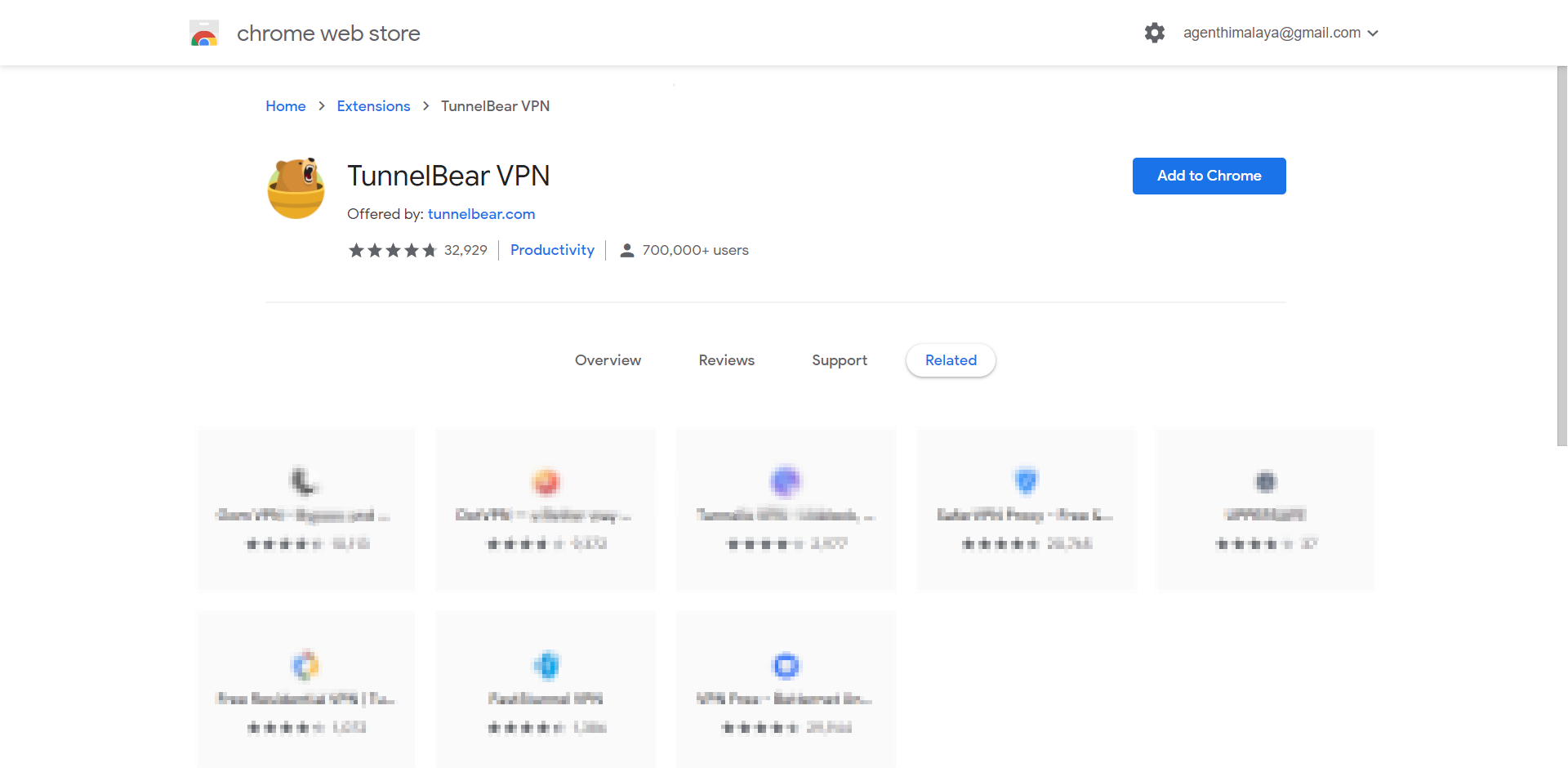
It may ask
you for a confirmation, click on the “Add extension” button to confirm.
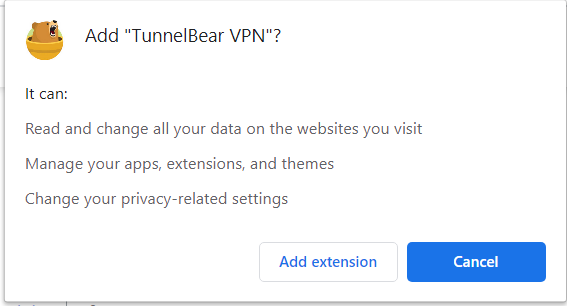
After
adding the extension, we’ll need to configure the extension.
Click on the “Extensions” icon present beside
the URL/Address bar, and then pin TunnelBear.

After
pinning TunnerBear, the icon of TunnelBear will appear beside the URL/Address
bar.

Click on
the icon of TunnelBear, for the first time it will ask you to create an
account.
Enter your
email address & create a password for your account, after entering the
required details, click on the “Create Account” button.
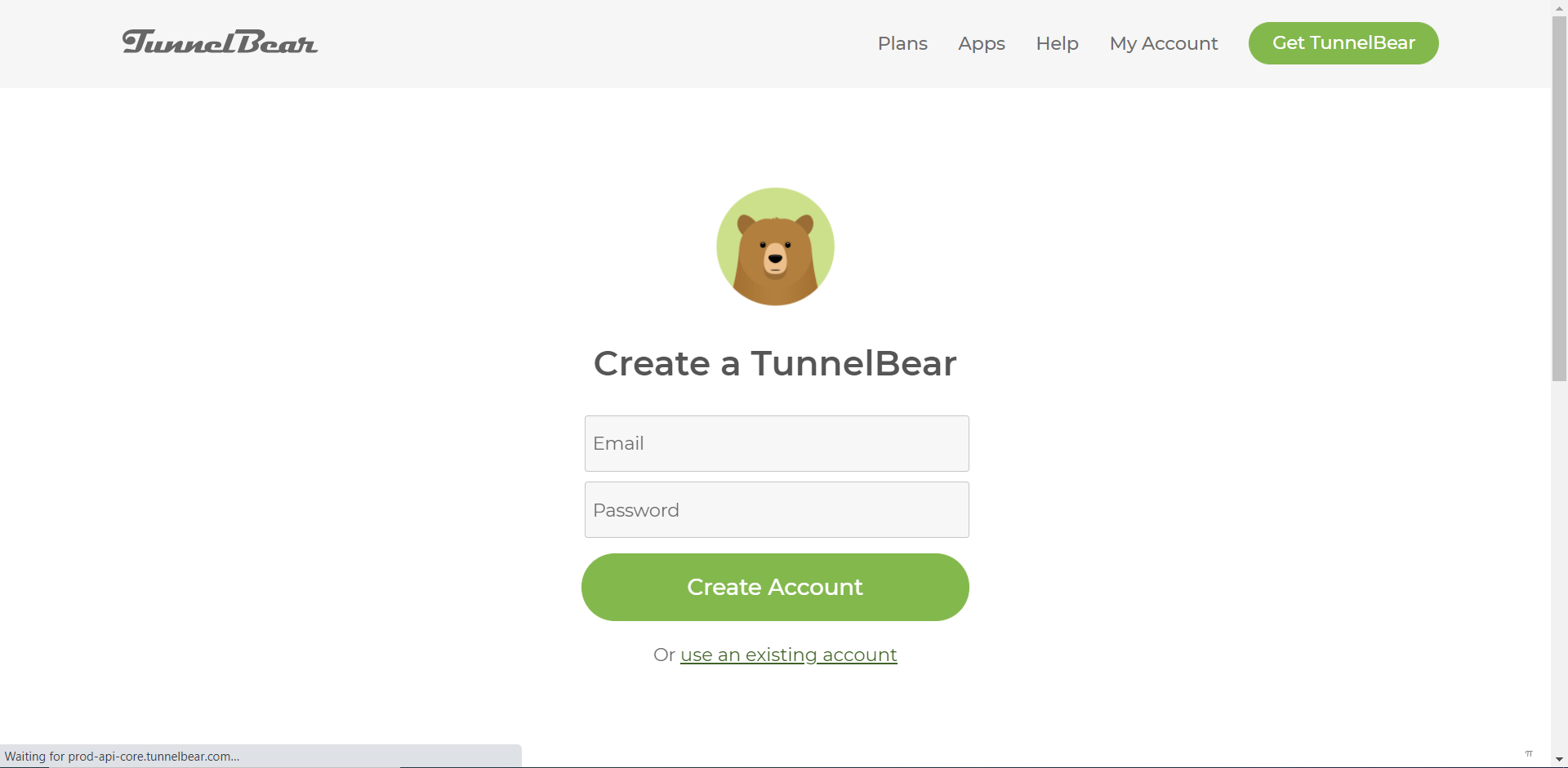
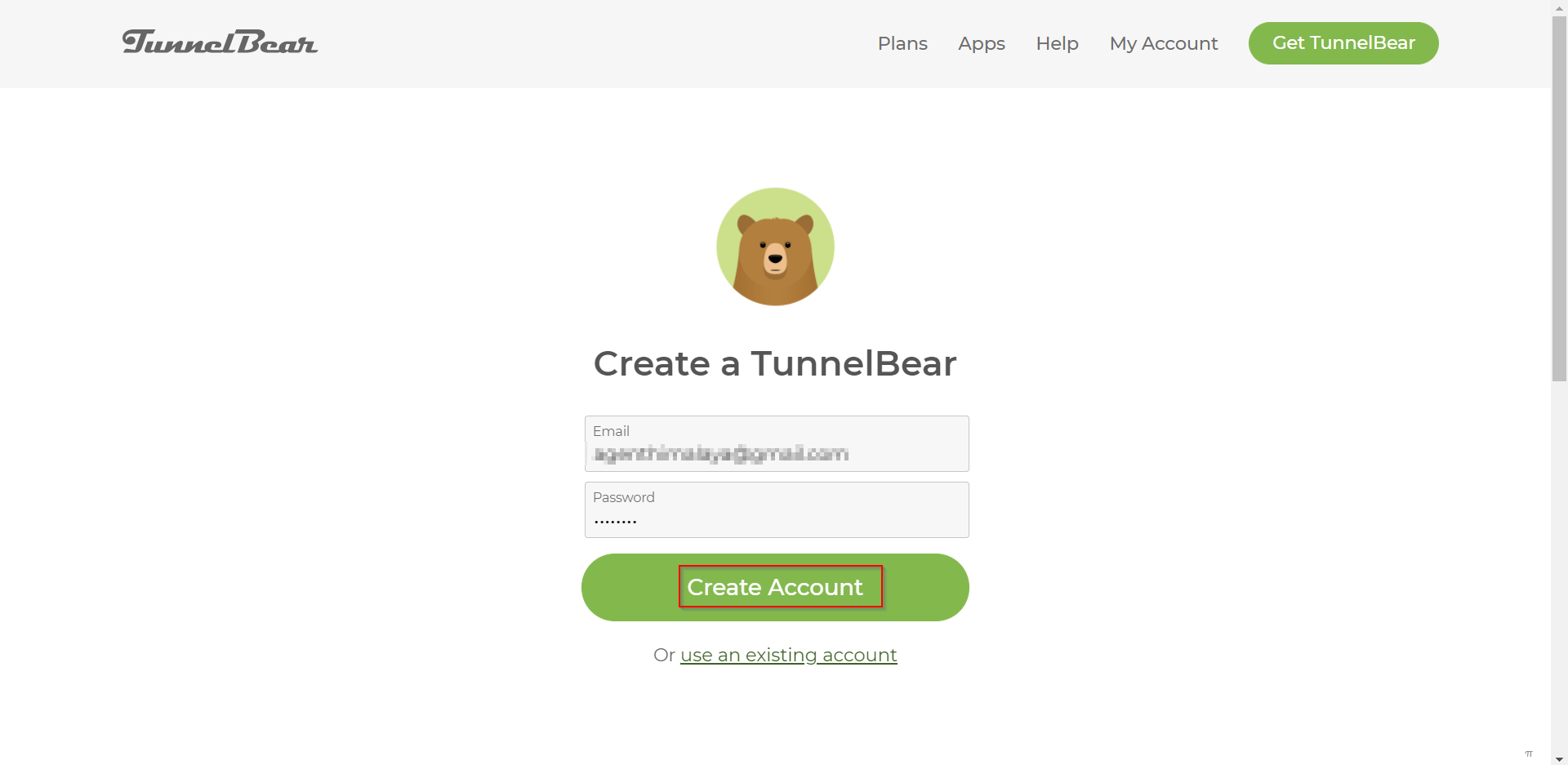
After
creating your account, you will be ready to access the VPN.
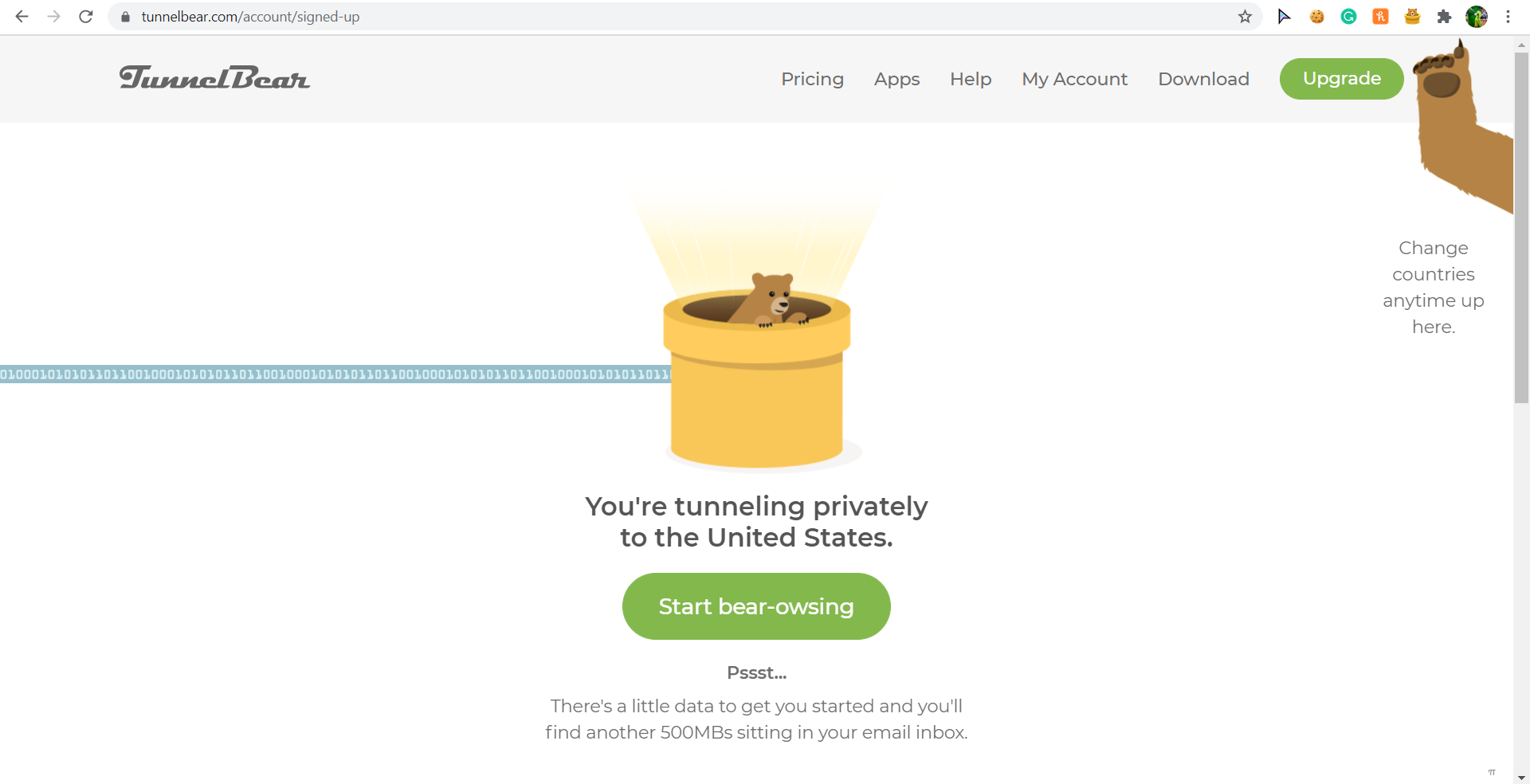
Click on
“Start bear-owsing” to see your new IP address.
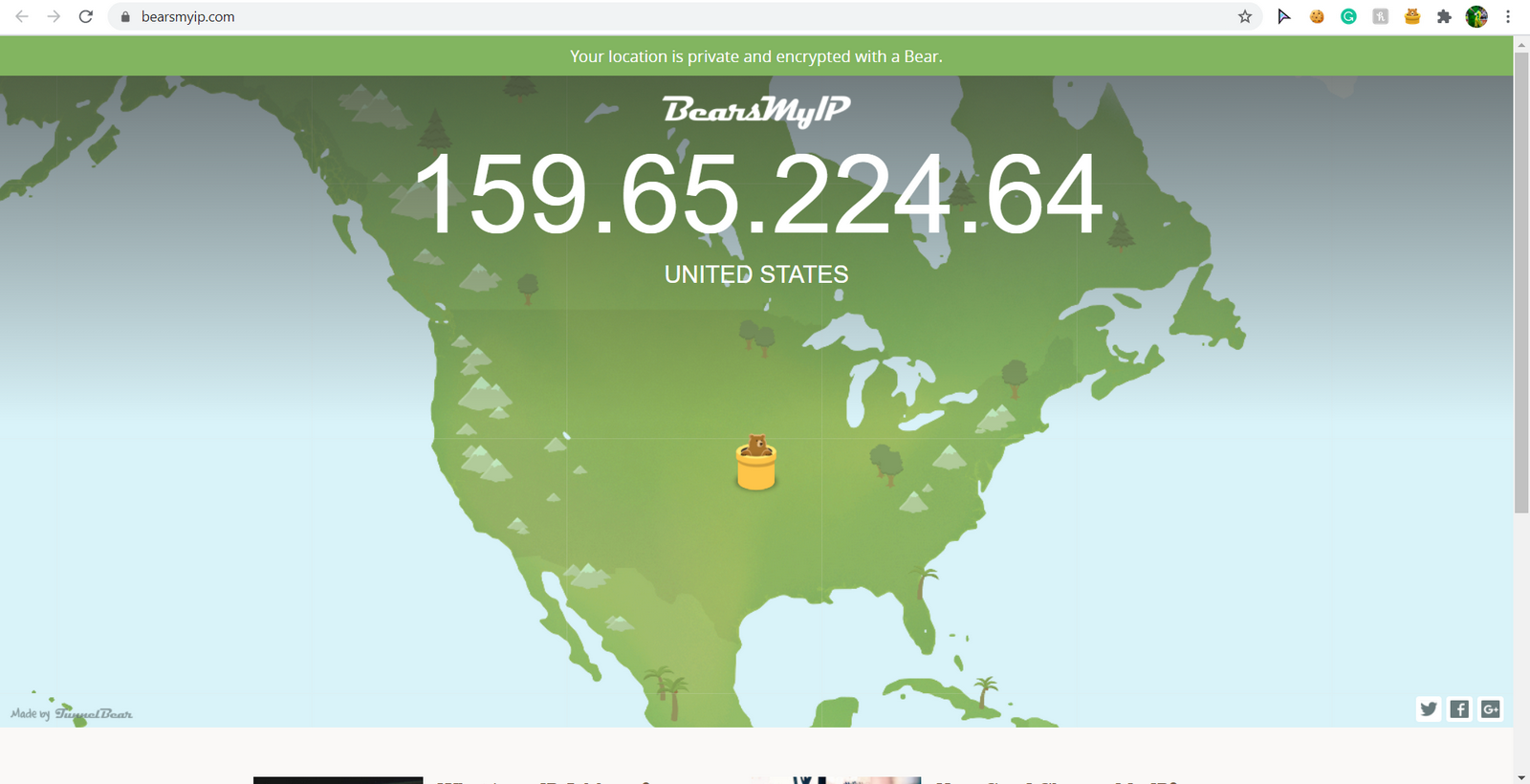
You can
also try searching “What’s my IP?” in your browser to check your IP address, and
to make it even more clear, you can search “What’s my IP?” in 2 different
browsers, one with VPN and one without VPN.
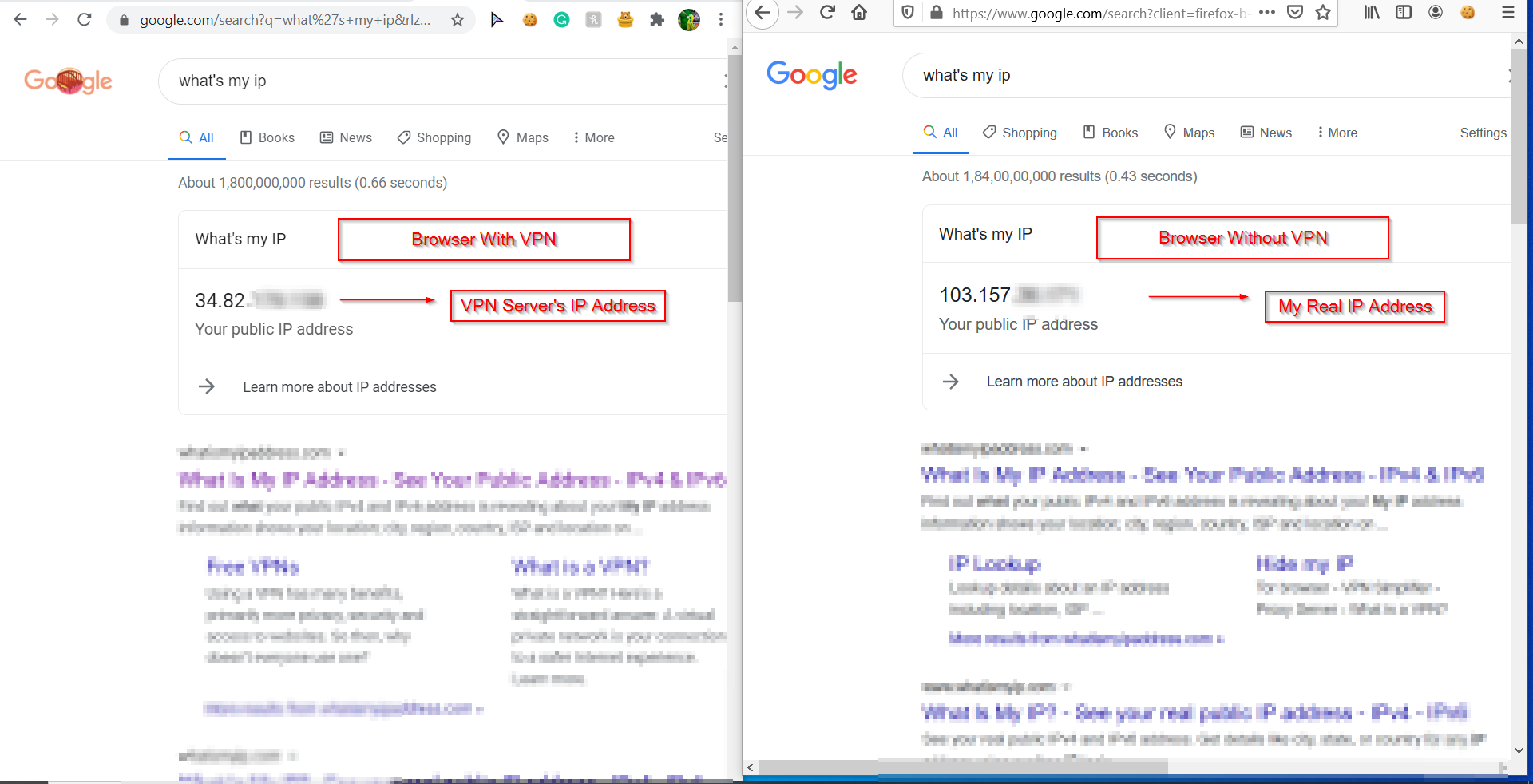 BACK TO TABLE OF CONTENTS
BACK TO TABLE OF CONTENTS
To switch
VPN servers, click on the TunnelBear icon present beside the URL/Address bar.
Click on
the arrow.

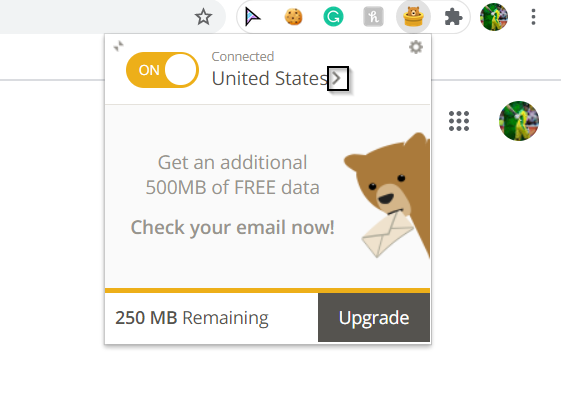
Select the server
on which you want to switch.
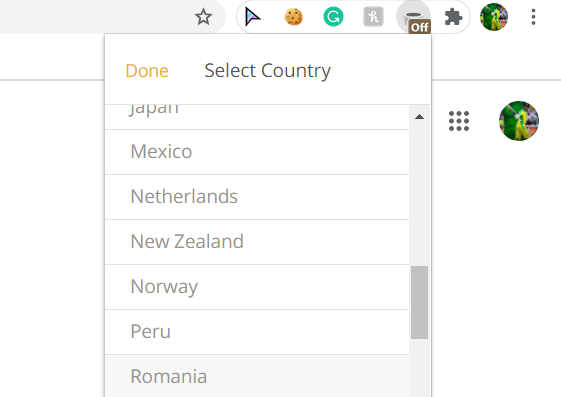
Done! Now
you have switched your server successfully.
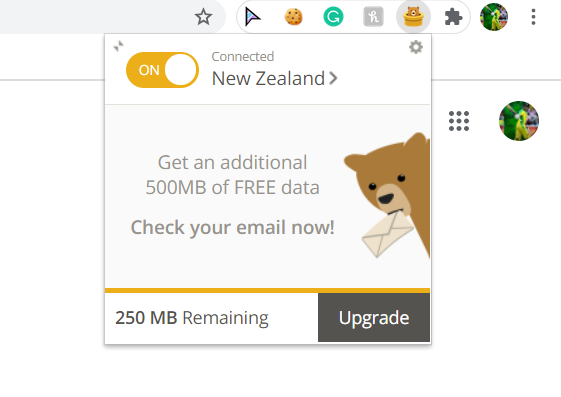 BACK TO TABLE OF CONTENTS
BACK TO TABLE OF CONTENTS
To turn off
VPN, click on the TunnelBear icon present beside the URL/Address bar.
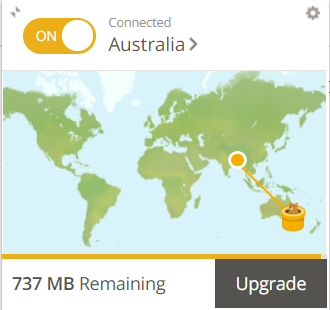
The word
“On” displays the current status of the VPN, and currently it is ON.
Click on
the “On” button to turn OFF the VPN.
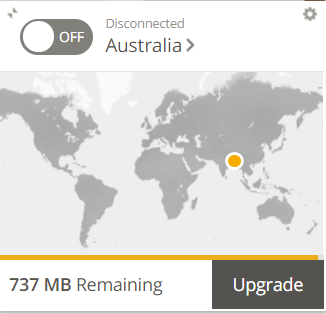
To turn on
VPN, click on the TunnelBear icon present beside the URL/Address bar.

The word
“Off” displays the current status of the VPN, and currently it is OFF.
Click on
the “Off” button to turn ON the VPN.
 BACK TO TABLE OF CONTENTS
BACK TO TABLE OF CONTENTS